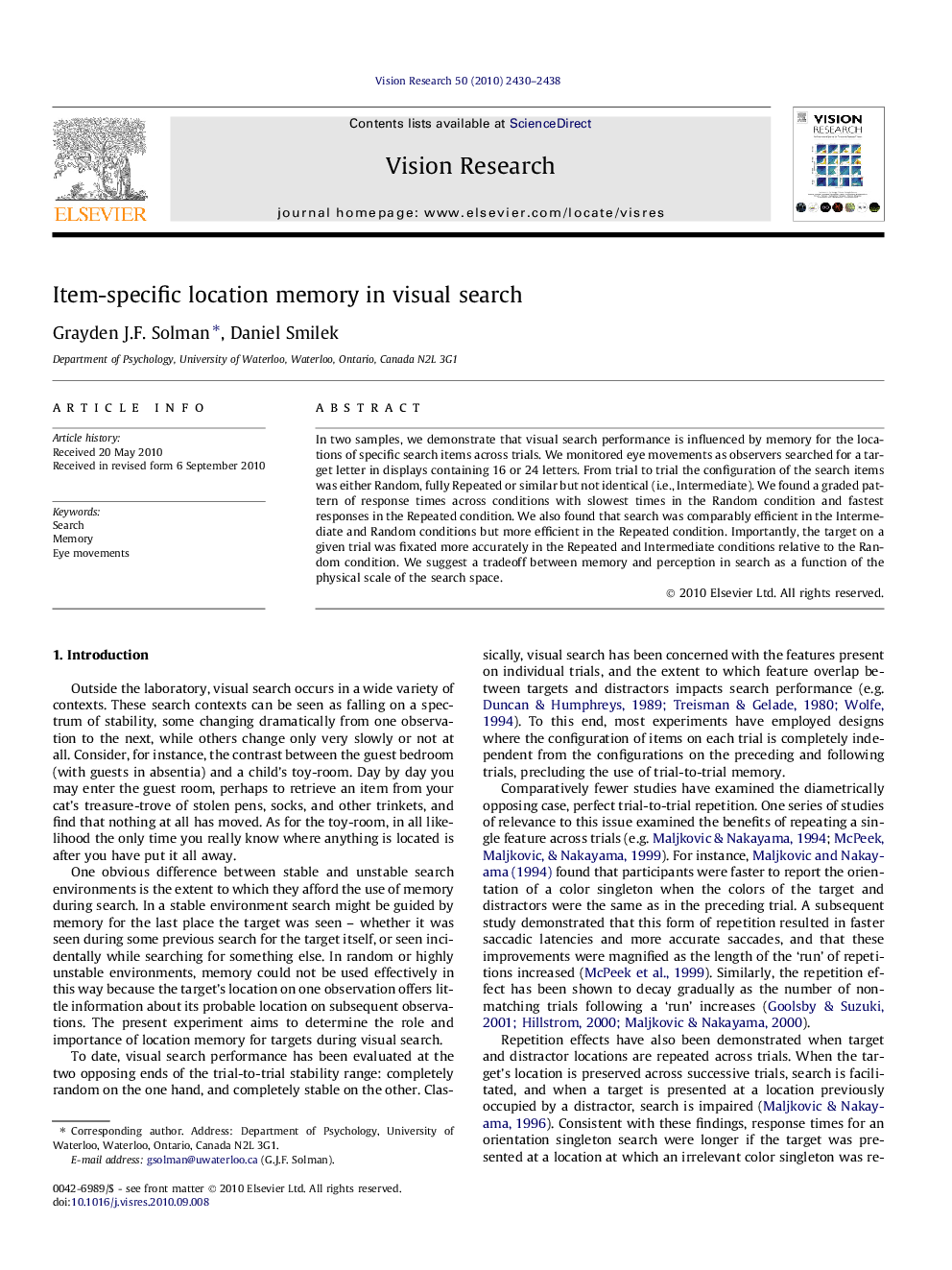| Article ID | Journal | Published Year | Pages | File Type |
|---|---|---|---|---|
| 6203808 | Vision Research | 2010 | 9 Pages |
In two samples, we demonstrate that visual search performance is influenced by memory for the locations of specific search items across trials. We monitored eye movements as observers searched for a target letter in displays containing 16 or 24 letters. From trial to trial the configuration of the search items was either Random, fully Repeated or similar but not identical (i.e., Intermediate). We found a graded pattern of response times across conditions with slowest times in the Random condition and fastest responses in the Repeated condition. We also found that search was comparably efficient in the Intermediate and Random conditions but more efficient in the Repeated condition. Importantly, the target on a given trial was fixated more accurately in the Repeated and Intermediate conditions relative to the Random condition. We suggest a tradeoff between memory and perception in search as a function of the physical scale of the search space.
Research highlights⺠Efficiency improvements in Repeated search are due to memory for specific item locations. ⺠Memory effects manifest primarily in accurate initial orienting movements of the eyes. ⺠Memory for target locations is used more as target eccentricity increases. ⺠Conditions intermediate between Repeated and Random search behave more like Random than like Repeated conditions.
